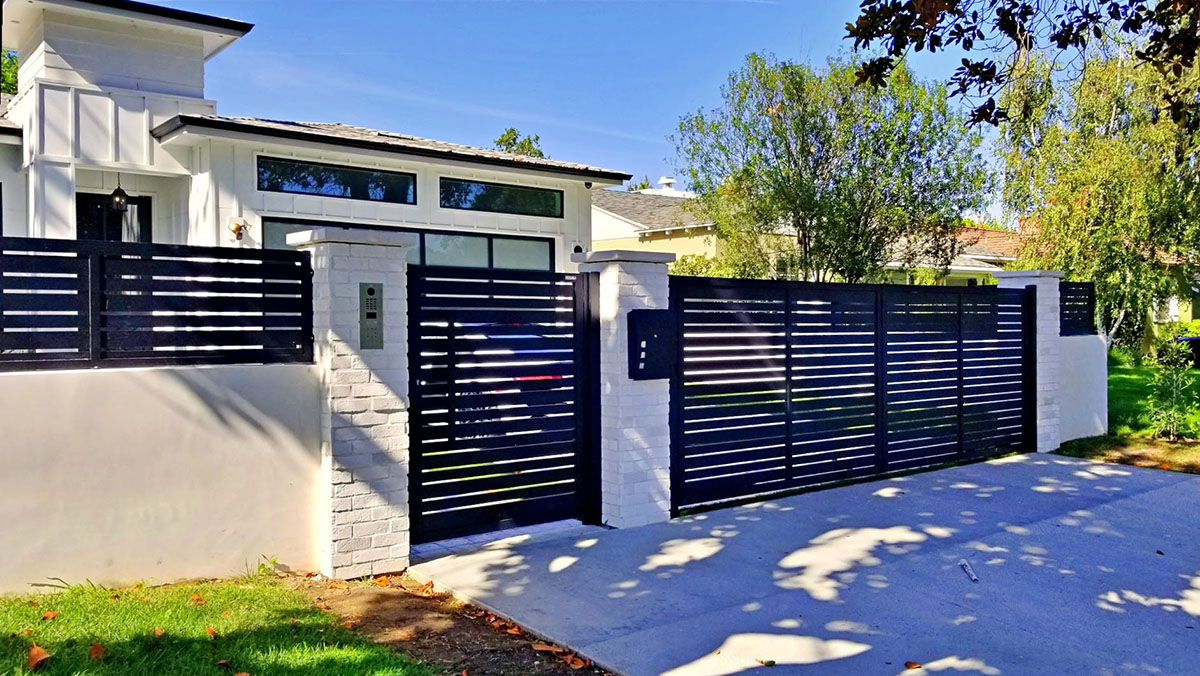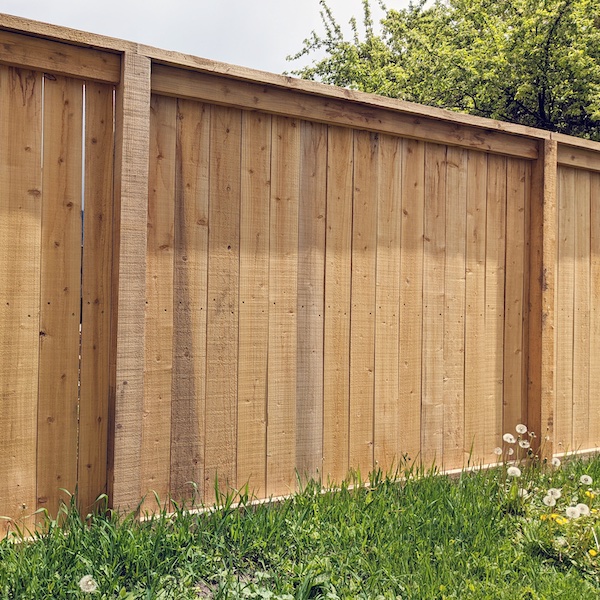All Categories
Featured

When it comes to choosing the right fencing material for your home, plastic, aluminum, and wood are amongst the most preferred alternatives. Listed below, we damage down the benefits and disadvantages of these 3 usual secure fencing materials.
Wood Secure Fencing. Pros:
Visual Allure: Timber fences provide an all-natural, classic appearance that matches most kinds of landscape design and design. They can be quickly personalized with paint or discolor, offering you the liberty to produce the excellent shade and coating for your residential property. Versatility: Wood can be made use of to create a selection of fence designs, from conventional picket fencings to more contemporary designs like personal privacy fences or rustic ranch-style fences. It's very easy to add or modify to in time if your needs alter. Cost: Timber is normally extra cost effective than plastic or aluminum, making it an appealing choice for property owners on a spending plan. The preliminary price of a timber fencing is generally less than the various other materials. Disadvantages:

Upkeep Needs: Wood fencings call for routine maintenance, including discoloration, sealing, or painting to safeguard them from weathering, rot, and bug damage. Without correct treatment, timber can deteriorate promptly. Longevity: Wood is at risk to harm from bugs like termites, and it can warp, fracture, or split over time due to exposure to the components. In areas with severe climate condition, wood may need to be changed a lot more often than various other materials. Limited Lifespan: While wood fences can last for several years with appropriate care, they generally have a shorter lifespan than plastic or light weight aluminum fences. Vinyl Fence. Pros:
Reduced Upkeep: One of the most significant benefits of vinyl secure fencing is its low upkeep requirements. Unlike timber, vinyl doesn't require to be painted, stained, or secured. It's immune to fading, fracturing, or bending, making it ideal for house owners that want an easy fencing. Durability: Plastic fencings are immune and extremely resilient to the elements, consisting of UV rays, rain, and humidity. They're likewise invulnerable to pests, such as termites, that can damage wood fences. Variety of Styles: Vinyl fencings can be found in a variety of designs and shades, and numerous resemble the appearance of wood without the maintenance drawbacks. You can pick from privacy fences, picket fencings, and even more to match your needs. Long Life-span: With correct treatment, vinyl fences can last years, much longer than wood fences, and they include warranties that offer peace of mind. Disadvantages:
Higher Preliminary Price: While plastic fencings can conserve cash on maintenance over the years, they often tend to have a higher upfront expense than timber fences, which may be a deterrent for some purchasers. Limited Customization: While vinyl fencings are readily available in a variety of styles and colors, they lack the customization flexibility that wood supplies. You're restricted to the pre-designed panels available, which might not suit every special visual. Possible for Splitting in Cold Climates: In severe cool temperature levels, vinyl fences can become brittle and may split under impact, making them much less ideal for locations with freezing winters. Light weight aluminum Fence. Pros:
Sturdiness and Toughness: Aluminum is a lightweight yet strong product that stands up to rust and corrosion, making it optimal for seaside areas or locations with high humidity. Aluminum fencings require marginal upkeep and can stand up to the elements for years. Aesthetic Allure: Aluminum fences offer a smooth, contemporary appearance. They can be found in a range of decorative designs and can be utilized to develop a much more contemporary or elegant seek your property. Low Upkeep: Aluminum fencings do not call for painting or sealing, and they're immune to rust and rust, making them exceptionally low upkeep over time. Protection: Light weight aluminum fences offer a greater degree of security contrasted to vinyl or wood fences due to their durable building and construction. They can be geared up with entrances and locks to offer a safe and secure boundary around your residential property. Disadvantages:

Price: Light weight aluminum fences are typically a lot more pricey than wood or vinyl fences, both in regards to materials and setup expenses. This greater rate point can be a downside for budget-conscious home owners. Less Privacy: Light weight aluminum fencings normally have an even more open layout, with pickets spaced apart to permit visibility through the fence. If privacy is a top priority, this may not be the most effective selection for your residential property. Prone to Denting: While light weight aluminum is rust-resistant, it can still be nicked or bent if struck with force, such as by a car or hefty devices. While it won't rust, it may not retain its pristine look if it gets damaged. Which Product is Right for You? Selecting the finest fencing material depends on your specific needs, budget plan, and long-term strategies for your residential or commercial property. On the various other hand, if you require a long-lasting, safe fence with a smooth look, light weight aluminum may be the appropriate product for you.
Inevitably, consider your climate, upkeep preferences, and visual desires when choosing your secure fencing material. Each option has its toughness and weaknesses, yet with the appropriate treatment and installation, all three can supply appealing and trusted limits for your residential property.
Latest Posts
Check Out the Best Auto Repair Coupons in Montclare, Chicago
Published May 24, 25
1 min read
Secure Your Financial Investment with Specialist Seamless Gutter Setup
Published May 20, 25
1 min read
How Chicago Drivers Trust Montclare Auto Repair for Trusted Service and Great Savings
Published May 20, 25
1 min read
More
Latest Posts
Check Out the Best Auto Repair Coupons in Montclare, Chicago
Published May 24, 25
1 min read
Secure Your Financial Investment with Specialist Seamless Gutter Setup
Published May 20, 25
1 min read
How Chicago Drivers Trust Montclare Auto Repair for Trusted Service and Great Savings
Published May 20, 25
1 min read